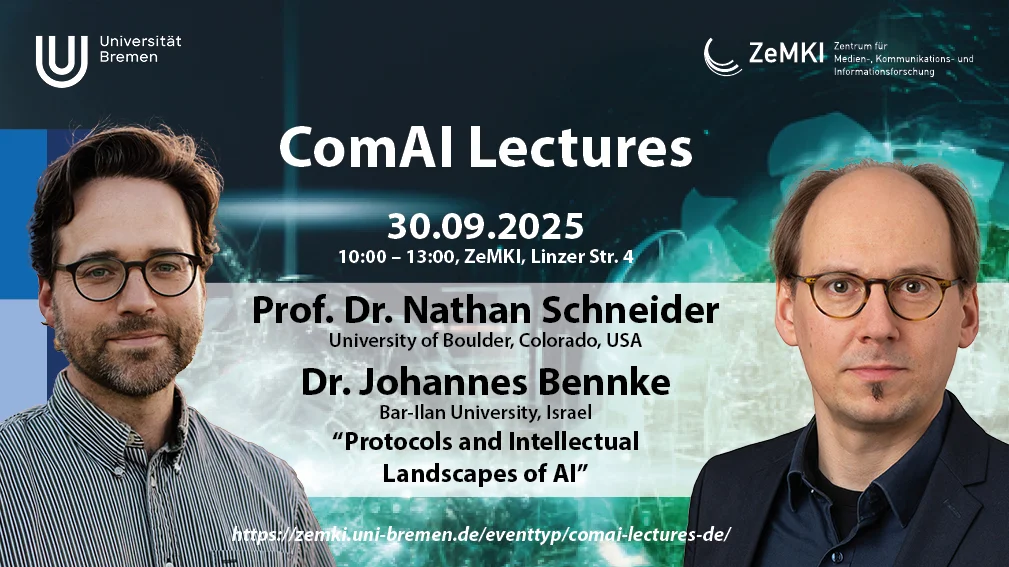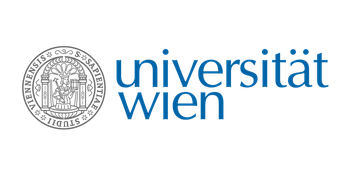ComAI Lecture “Protocols and Intellectual Landscapes” – How Protocols Organize Digital Communities

On September 30, Prof. Dr. Nathan Schneider (University of Boulder, Colorado, USA) and Dr. Johannes Bennke (Bar-Ilan University, Israel) visited ZeMKI for the ComAI lecture Protocols and Intellectual Landscapes. Together with ComAI spokesperson and ZeMKI member Prof. Dr. Andreas Hepp the workshop discussed the concepts of protocological governance and intellectual landscapes of AI in a joint, theoretical investigation.
Protocols have so far scarcely been examined for their potential in organizing society, even though a multitude of social processes are based on them. Nathan Schneider and Johannes Bennke were able to demonstrate how protocols can enable decentralized forms of community organization both online and offline. For example, indigenous communities, within colonial structures, preserve pre-colonial religious practices through syncretistic protocols. Blockchains like Bitcoin and Ethereum use protocols as quasi-sovereign infrastructures. Moreover, protocols enable a protocological governance of digital networks – a participatory, consensual, and authenticated alternative to centralized forms of order.
The potential of protocols thus lies not only in their technical function but in their significance as a sociotechnical vehicle for future forms of digital community, thereby establishing a connection to the concept of the intellectual landscapes of AI. As part of the ComAI research group, Project P1 investigates how pioneer communities imagine the future of society and artificial intelligence, with a focus on San Francisco and Berlin. The concept of intellectual landscapes argues that these pioneer imaginaries are anchored in specific locations, embedded in particular social figurations, and are part of discursive thickenings. To what extent are our ideas about the future of AI shaped by protocols? What role do decentralized forms of order play in a digitized society? The workshop Protocols and Intellectual Landscapes of AI addressed these and other questions at the intersection of technological feasibility and imaginary possibility.
9. October 2025Contact:
Prof. Dr. Andreas Hepp
ZeMKI, Center for Media, Communication and Information Research
University of Bremen
Phone: +49 421 218-67620
Assistent Mrs. Schober: +49 421 218-67603
E-mail: andreas.hepp@uni-bremen.de







